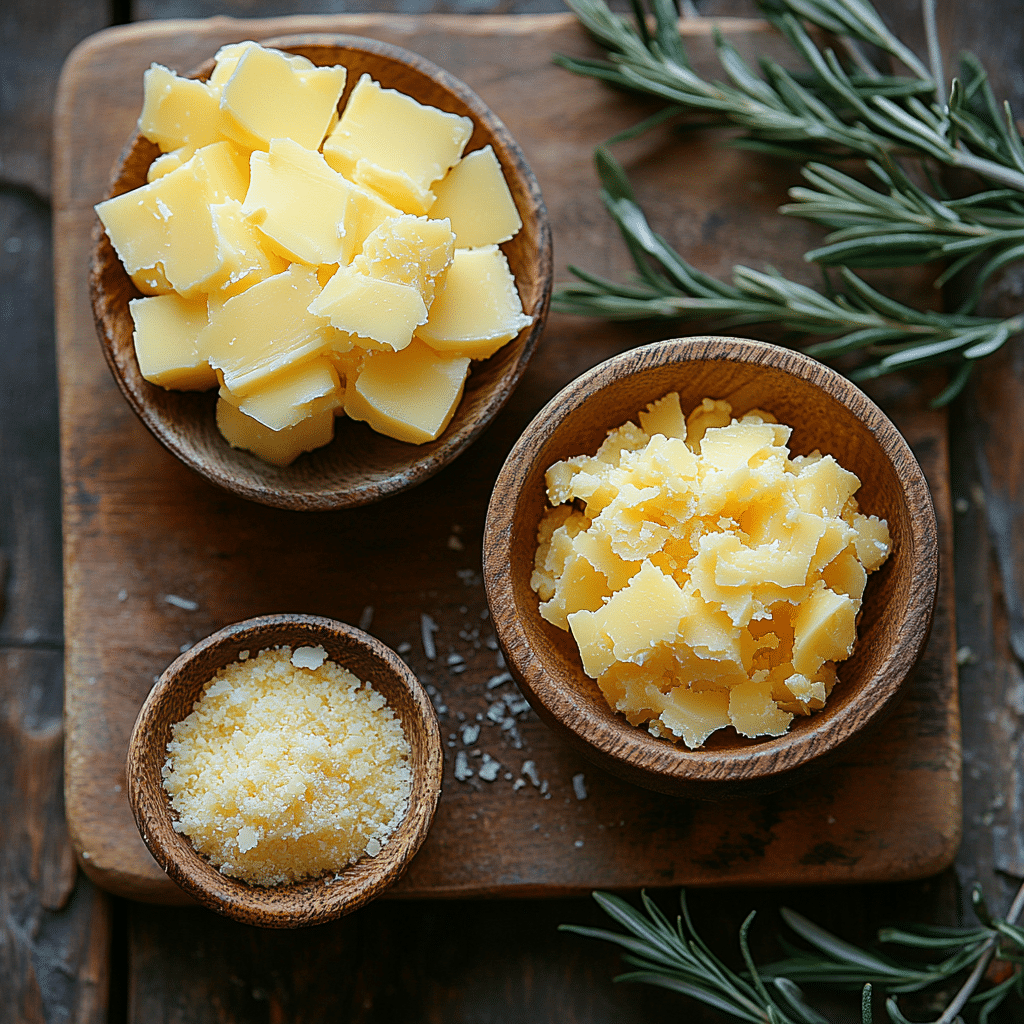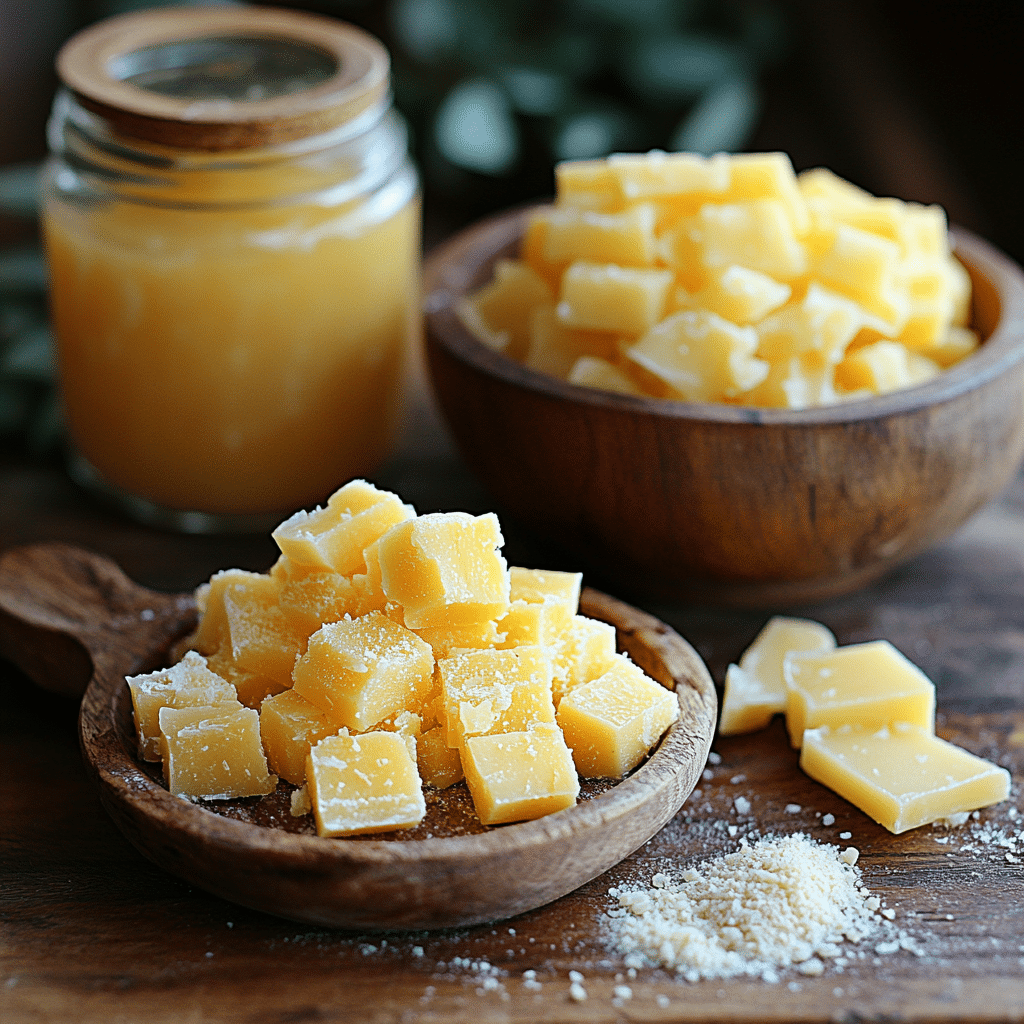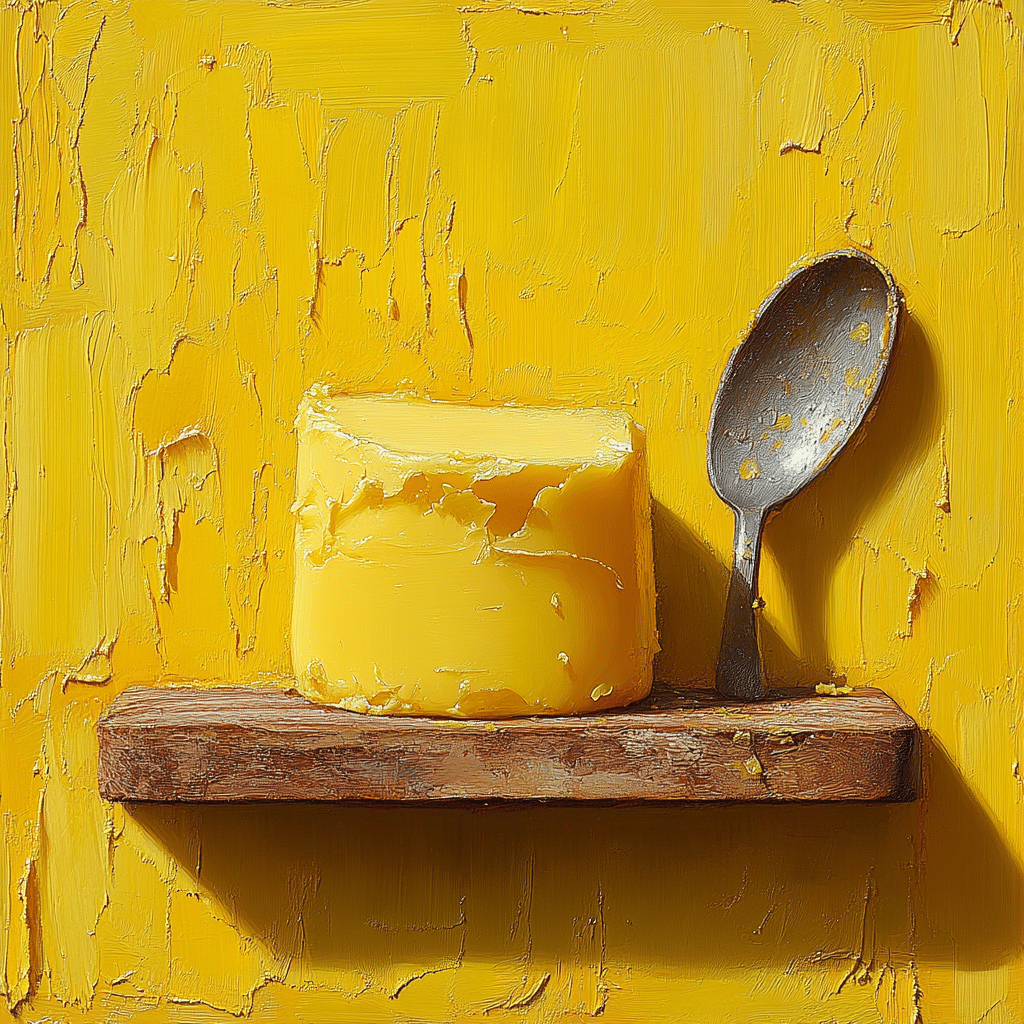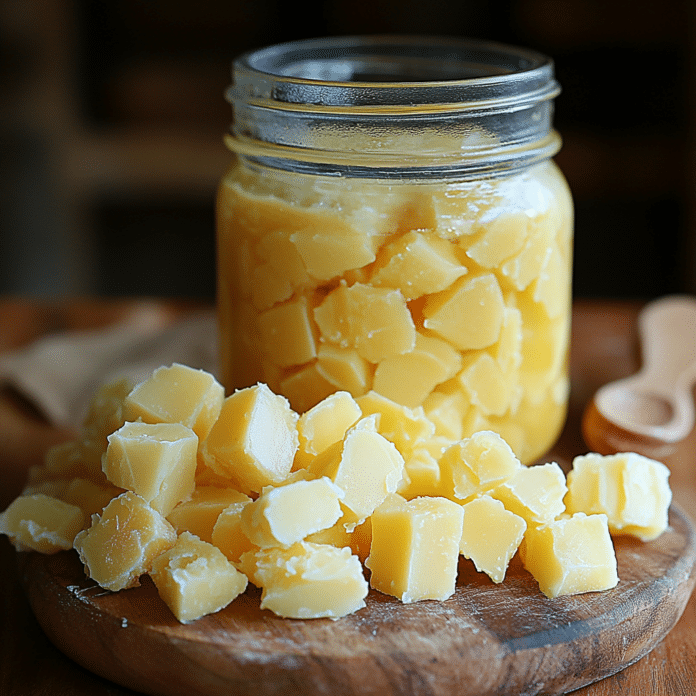In the culinary world, the age-old debate of ghee vs butter has garnered much attention, raising questions around health benefits and flavor profiles. Both ghee and butter have rich cultural histories, and each has carved a niche in kitchens worldwide. However, choosing between them involves understanding their origins, nutritional values, cooking applications, and health impacts—essentially figuring out what aligns best with your lifestyle and culinary needs.
1. Understanding Ghee and Butter: Origins and Cultural Significance
Ghee
Ghee has deep roots in Indian cuisine and is an essential element of Ayurvedic medicine. Often viewed as sacred, ghee has been revered for its culinary and medicinal properties for thousands of years. Traditionally prepared by simmering butter to remove its water content and milk solids, ghee emerges as a golden, nutty substance. Its role goes beyond flavor in the Indian kitchen; it signifies purity and is used in religious rituals, symbolizing nourishment and abundance.
Butter
On the flip side, butter has strong ties to Western cultures, especially in Europe, where it has graced tables—from royal feasts to humble dinners. It’s celebrated for its versatility and creamy texture, used in everything from pastries to sauces. Butter solidified its place in culinary traditions within French and Italian cooking, contributing to rich flavors and smooth consistency across numerous dishes.

2. Top 5 Nutritional Differences: Ghee vs Butter
1. Fat Content: A Detailed Breakdown
When delving into the ghee vs butter nutritional landscape, fat content is closely scrutinized. For instance, brands like Kerrygold butter pack about 7 grams of saturated fat per tablespoon, while Organic Valley ghee boasts approximately 8 grams. However, ghee contains more beneficial short-chain fatty acids, which some research suggests may promote heart health.
2. Lactose and Casein Levels
One significant aspect of ghee is its low levels of lactose and casein, making it more tolerable for those with dairy sensitivities. Many individuals suffering from lactose intolerance report fewer digestive issues when consuming ghee instead of butter. Therefore, if you find dairy a struggle, ghee might provide relief without sacrificing flavor.
3. Vitamins and Antioxidants
In the race of ghee vs butter, it’s noteworthy that both are rich in fat-soluble vitamins, particularly vitamins A and E. Some studies indicate that ghee may contain higher concentrations of these vitamins, making it a nutrient-dense option. This nutritional advantage suggests that incorporating ghee into your diet could potentially offer additional health benefits.
4. Smoke Point: Culinary Uses
The smoke point plays a crucial role in cooking, affecting flavor and nutritional values. Ghee shines in this area, having a higher smoke point of around 485°F compared to butter’s 350°F. This high-heat tolerance allows ghee to withstand frying and sautéing, contributing rich flavor profiles without burning.
5. Caloric Value and Weight Management
Recent research sheds light on calorie density affecting dietary choices. Generally, ghee contains about 120 calories per tablespoon, slightly higher than butter’s 102 calories in brands like Nutiva and Land O’Lakes, respectively. Understanding this, health-conscious individuals can make informed decisions based on their dietary goals.
3. Ghee vs Butter in Cooking: Flavor Profiles and Kitchen Applications
When considering how each option influences flavors, ghee introduces a delicious nuttiness to dishes, while butter provides a creamy sweetness. Notably, chefs like Yotam Ottolenghi and Ina Garten have made significant use of both ingredients in their recipes. Ottolenghi often opts for ghee in curries for depth of flavor, while Garten showcases butter’s decadence in pastries.
In culinary surveys, consumer preferences illustrate ghee’s popularity for Indian dishes like dal and curries, while butter dominates traditional baking recipes, elevating goodies like pie crusts and cookies. These insights reveal that while both fats serve their purposes, they cater to distinct cravings and cooking styles.

4. Health Perspectives: Ghee vs Butter in Modern Diets
As dietary trends evolve, there’s growing interest in ghee, with nutritionists advocating its inclusion due to its perceived health benefits. Studies link ghee consumption to potential advantages for heart health and improved digestion, garnering attention from dietary leaders.
Comparing regions such as Sri Lanka (SL) vs New Zealand (NZ) shows ghee as a staple in SL cuisines versus the high butter consumption in NZ. This contrast sheds light on how cultural dietary choices shape health trends across different populations.
5. Ghee and Butter in Lifestyle: Cost, Accessibility, and Dietary Trends
Examining the financial aspects, ghee tends to be more costly than artisanal butters often available in condo vs apartment living settings. While prices vary by brand—from premium ghee by Tinpo to budget-friendly butter options—urban areas generally encounter higher costs.
Shifting dietary trends reflect the rise of plant-based options incorporating ghee alternatives, with consumers exploring vegan butters as substitutes. Yet, traditionalists still embrace butter for its historical significance and flavor.
6. Ghee vs Butter: Choosing Your Winner
When it boils down to the ultimate showdown of ghee vs butter, individual preferences, dietary needs, and culinary styles reign supreme. For instance, health-conscious millennials are increasingly turning to ghee, intrigued by its ancient health benefits and distinct taste. Meanwhile, butter remains a go-to for those who relish its creamy texture and rich flavor in baked goods.
Ultimately, the decision hinges on personal values concerning health objectives and the culinary journey. Consider every option’s merits and how they align with your cooking ambitions—embrace the nutty richness of ghee or dip into the creamy allure of butter, knowing that either choice can elevate your culinary endeavors.
Innovative Wrap-Up
In today’s evolving culinary landscape, the discussion around ghee vs butter remains critical for consumers. While ghee shines with its rich flavor and high smoke point, butter’s cultural significance cannot be easily cast aside. Exploring both options thoughtfully might just spark a delightful culinary journey, balancing health and flavor. As you make your choice, remember that informed decisions can lead to innovative cooking experiences, making every meal an adventure worth savoring.
So, whether you lean toward the full-bodied essence of ghee or the nostalgic creaminess of butter, you’re not just choosing an ingredient—you’re embracing culture and tradition, nourishing your body, and enriching your palate.
Ghee vs Butter: Fun Trivia and Interesting Facts
The Fat Debate
When you’re choosing between ghee and butter, the decision can be a bit like picking your favorite TV show—everyone has an opinion! Did you know that ghee, a staple in Indian cooking, is clarified butter, meaning it’s cooked to remove the milk solids? This process not only gives ghee a higher smoke point, great for frying and sautéing, but it also makes it lactose-free. Speaking of interesting transformations, take a look at how classic products like Ivory soap( have stood the test of time, much like ghee in culinary traditions. The versatility of ghee and its rich, nutty flavor have made it a perfect match for countless dishes, from savory curries to dollops on warm naan.
Nutritional Showdown
When comparing ghee vs butter, nutrition is key, so here’s a fun fact: ghee contains butyrate, a fatty acid that supports gut health. This unique composition is one reason many people are moving towards incorporating ghee into their diets. Interestingly, butter, while delicious and creamy, has a higher amount of casein, a protein that can cause irritation for some folks. Just like the thrill of a Rubber movie( where anything can happen, the debate over which is healthier keeps evolving.
Culinary Applications
In terms of flavor, ghee often wins hearts as chefs enjoy the ‘wow’ factor it brings to dishes. Plus, it has a shelf life that puts regular butter to shame—no fridge required! Thinking about comfort and nostalgia, some might find parallels in timeless music, much like Tito Jackson ’ s cause Of death() creating a conversation about legacy. And just like the chatter on The Wendy williams show news,(,) it’s easy to see why opinions on ghee vs butter are so passionate. It’s always fun to have a friendly debate over dinner!
Choosing between ghee and butter doesn’t have to be hard; it’s all about taste and nutrition. With trivia like this, you can impress your friends at your next gathering. Whether you’re going for the rich, creamy touch of butter, or the aromatic depth of ghee, each has its own character that can elevate your meals in delightful ways—like the beautiful melodies of Ed Norton Movies( playing in the background! So next time you’re cooking, remember this handy guide to navigate your choices in the ghee vs butter debate, and have fun doing it!




